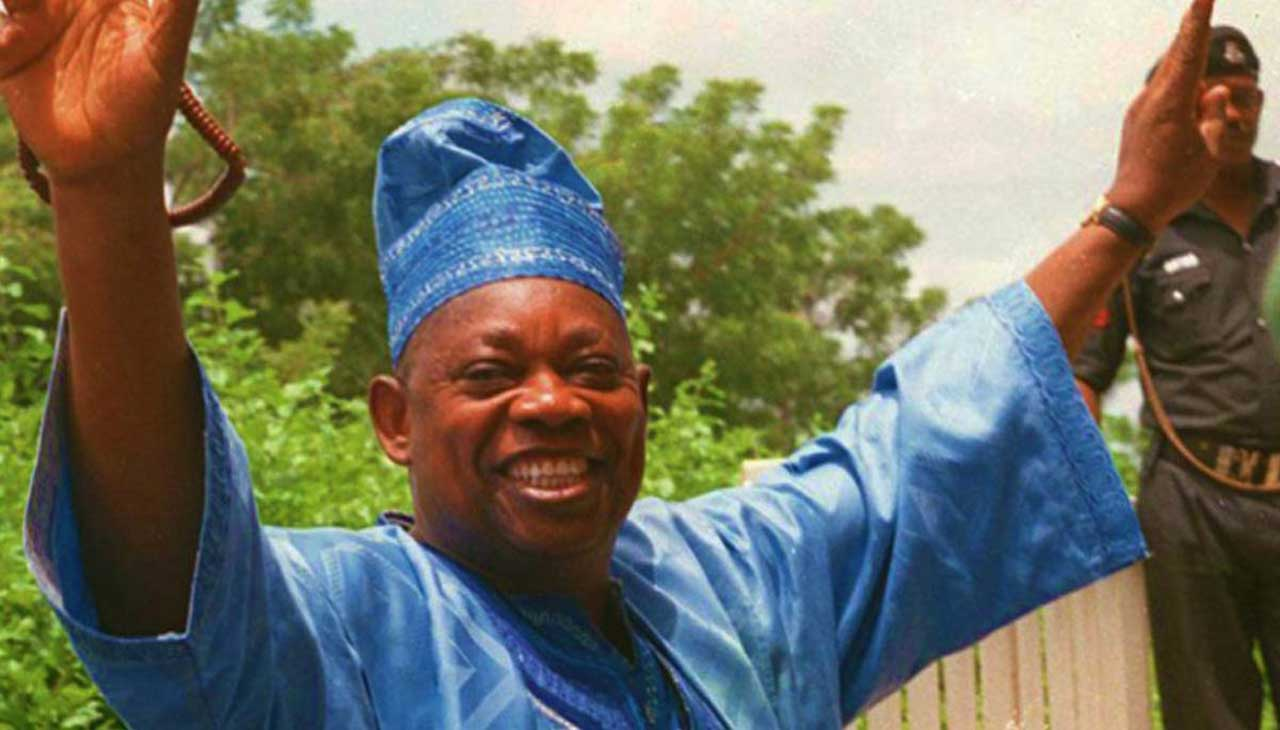June 12 represents democracy day in Nigeria, and it is built on the electoral victory of MKO Abiola and the subsequent annulment by General Badamosi Babangida.
MKO is a lover of not just Nigeria but its sports as well.
This is demonstrated in his setting up of a football team in the 80s until its natural death in the 90s.
Democracy Day: The Begining Of The End For Abiola Babes
Behind Abiola’s death on June 8 was his belief that Nigeria could be better, which also applies to the death of his club, Abiola Babes.
After a meeting with other private club owners, Abiola pulled down the curtain on his club in protest of the poor quality administration of the league and sport in the country and continent.
MKO is not known for giving up without a fight, he fought and advised the administrators, but it all fell on deaf ears. His love for football was not about his country, as he famously donated a trophy to the Confederation Of African Football CAF for a club competition named CAF Cup.
The trophy was first won by a Nigerian club, Shooting Stars of Ibadan.
Years later, the competition was merged with the Mandela Cup to form what we now know as the CAF Confederations Cup.
Traveling Challenges on The Continent
On the administrative side, poor sportsmanship is still a problem on the continent, as narrated by Abiola on their way to honor a game in Zambia.
His experience, especially as it concerns traveling for games.
“You see the cost of transportation too. How much it costs me in foreign exchange?
We played Esperance in Tunisia. We had evidence that some of my boys took bribe to concede that match. Only to find. . .we got to the airport, Alitalia’s flight was canceled because of the strike. I had to pay in foreign exchange. In those days, the whole team and the supporters to London to connect back to Lagos in hard currency.”
A Dilemma With Sports Administrators
Before giving up on football administration, Abiola, In an interview, gave insights on the challenges of playing in Africa.
His issues with the then Nigeria Football Association and a case of poor coordination made the decision easy.
In the interview with Segun Odegbami in 1992, Abiola bares it all.
“We were told by the NFA (Nigeria Football Association) that the match would be played in Lusaka. We struggled there on the eve of the match to be told we would be playing in Nchanga. I had to beg for a flight to fly us to Ndola at 10:30 at night.” Abiola stated in an interview in 1992.
“I hired a bus from Ndola to take us through Kitwe to Nchanga, only to find that the bus driver was drunk.
“So, I drove the bus myself for three-and-a-half hours. We were stopped by armed robbers three times on the road. They opened fire on us near Kitwe. What if I had been killed? I had to bribe our way through to Kitwe. We got to Kitwe at 2:30 in the morning, on the day of the match, to find that the officials had left.
“So, I dropped the boys, made sure they rested quickly and drove the bus back to Kitwe to bring them (officials) back at 7:00 in the morning to officiate. They played the match at 2pm because they didn’t want our boys to rest.”
Like Abiola Babes, Like Enyimba and Dolphins
31 years on, the logistics challenge still exists in African football as teams struggle to meet their obligations.
When Nigerian club needs to travel to North Africa, they will pass through Europe before reaching their destination. A problem brought about by the lack of direct flights on the continent.
Defunct Dolphins FC in 2015 and ENYIMBA in 2022 faced a similar hurdle.
Enyimba were turned back from entering Tunisia by Moroccan Officials because of vaccination issues.
Afterward, CAF returned the match to a venue in Libya, where they were initially banned due to unrest.
